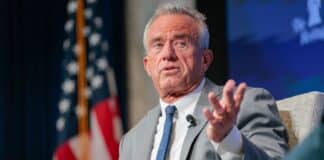Colorado health officials confirmed a second case of measles in the state, raising alarm amid a growing national outbreak. The Colorado Department of Public Health and Environment (CDPHE) announced Monday that an unvaccinated infant in Denver County likely contracted the virus during recent travel to Mexico.
The infant had traveled to Chihuahua, Mexico, which is experiencing an ongoing measles outbreak. CDPHE urged caution for individuals who were at the Denver Health Emergency Department on Sunday between 10:30 a.m. and 4:30 p.m., as they may have been exposed. Health officials recommend a 21-day monitoring period for anyone who was present during that window.
This latest case follows another confirmed measles infection in Colorado on March 31. That case involved an unvaccinated person from Pueblo who also recently returned from Mexico. Both cases highlight the continued risk of international travel in spreading highly contagious diseases like measles.
Measles symptoms typically appear seven to 21 days after exposure and include high fever, cough, runny nose, red eyes, and a distinctive rash. The virus spreads through airborne particles and can remain in the air for up to two hours after an infected person leaves an area.
CDPHE emphasized the importance of the measles, mumps, and rubella (MMR) vaccine in preventing transmission. “Health care providers should report patients suspected of having measles immediately,” the department said, urging extra caution for those who have recently traveled to Texas or New Mexico.
Nationally, over 600 cases have been confirmed as of April 3, according to the Centers for Disease Control and Prevention (CDC). West Texas has been hit particularly hard, accounting for 505 of the reported cases.
Health and Human Services Secretary Robert F. Kennedy Jr. addressed the crisis over the weekend after attending the funeral of an 8-year-old Mennonite girl who died from measles in Seminole, Texas. Kennedy said he had deployed CDC teams to affected Texas regions in early March to provide MMR vaccines and supplies, noting that case and hospitalization growth has begun to stabilize.
Kennedy called the MMR vaccine the “most effective way to prevent the spread of measles,” underscoring the critical role of immunization in public health.





